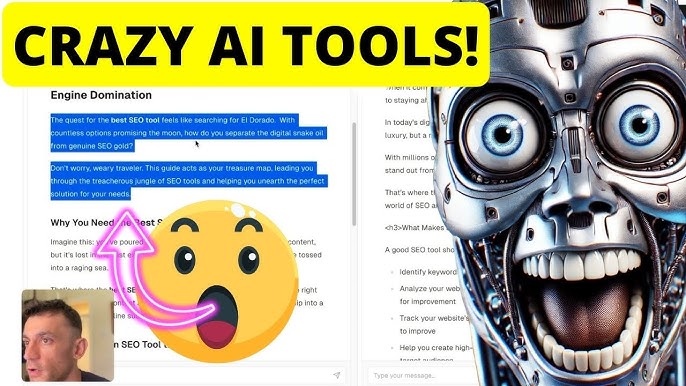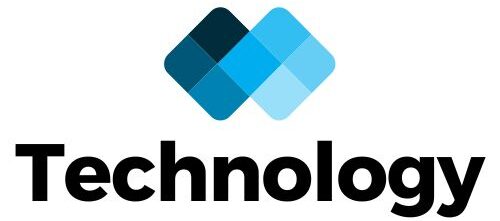The landscape of search engine optimization (SEO) is rapidly evolving, and at the forefront of this transformation are AI SEO tools. These powerful platforms leverage artificial intelligence to automate tasks, optimize content, analyze data, and ultimately, improve search rankings and organic traffic. From keyword research to content generation and technical SEO audits, AI is revolutionizing how businesses approach SEO, empowering them to achieve greater efficiency and success in a competitive online environment. Understanding and utilizing the best AI SEO tools is no longer a luxury but a necessity for staying ahead of the curve and dominating the search results.
Understanding the AI Revolution in SEO

AI is fundamentally changing how we approach SEO, moving away from manual, time-consuming tasks towards a more automated and data-driven approach. This shift is driven by advancements in machine learning, natural language processing, and big data analysis, allowing AI-powered tools to analyze vast amounts of data and glean insights that humans would struggle to uncover. This shift is impacting every facet of SEO, from keyword research and content optimization to link building and technical SEO.
Keyword Research & Content Ideation
The cornerstone of any successful SEO strategy begins with understanding what people are searching for. Traditional keyword research often involved manual analysis of search volumes, competitor analysis, and guesswork. AI SEO tools are changing this equation by leveraging algorithms to analyze massive datasets of search queries, trends, and user intent. They help identify high-potential keywords, long-tail keywords, and even latent user needs that a human might miss. This deeper understanding aids in the creation of targeted and relevant content that resonates with searchers.
By leveraging AI, marketers can tap into a wealth of data and gain a nuanced understanding of user intent. For instance, if a tool analyzes search data and identifies a significant increase in searches for “best vegan protein powder for weight loss,” it signals a rising trend that marketers can capitalize on. This goes beyond basic keyword identification; it allows them to understand the specific needs and motivations behind the search query. This understanding can inform the creation of content that directly addresses the user’s needs, such as a blog post that compares different vegan protein powders, highlights their benefits for weight loss, and addresses common concerns around nutritional value.
Content Optimization & Improvement
Content is king in the SEO realm, and AI SEO tools can play a pivotal role in creating high-quality, engaging, and search-engine-optimized content. These tools go beyond grammar and spelling checks; they can provide insights into readability, SEO score, and even content originality. AI-powered writing assistants can help draft compelling content, suggest improved phrasing, and ensure the content adheres to best SEO practices. The result is content that is both informative and optimized for search engines, improving organic visibility and engagement.
With AI-driven writing assistants, marketers can overcome writer’s block and produce content more efficiently. Imagine a scenario where a marketer needs to create a blog post about “sustainable fashion trends.” An AI tool can help brainstorm topic ideas, suggest relevant keywords to incorporate in the content, ensure the content is engaging and readable, and even generate different content variations for optimal testing. Beyond this, AI can also help refine existing content. By analyzing user engagement metrics and performance data from Google Search Console, an AI tool can suggest ways to improve content structure, optimize headings, and add relevant keywords to make the content more appealing to search engines and users.
Technical SEO Optimization
Technical SEO encompasses the behind-the-scenes aspects of a website that affect its ranking potential. AI tools are increasingly adept at automating technical SEO tasks, such as site speed optimization, crawl error detection, and schema markup implementation. By analyzing website performance data and identifying bottlenecks impacting crawling, indexing, and loading speed, AI tools can recommend changes that improve a site’s technical health. This, in turn, leads to better search engine performance and a more positive user experience.
The ability of AI tools to automate technical SEO tasks is a game changer for both large and small businesses. Traditionally, website speed optimization was a labor-intensive process that required expertise and numerous plugins. Now, AI tools can quickly analyze a website’s loading speeds, identify slow-loading elements, and suggest specific optimization steps, like compressing images or minimizing the use of unnecessary scripts. This not only saves time but also ensures that a website adheres to the best practices set by Google. Similarly, AI tools can automatically analyze a website’s schema markup, identify any errors or areas for improvement, and provide recommendations for implementing schema in a way that enhances search visibility and promotes rich snippets in search results.
Automating Link Building with AI

Link building is a fundamental aspect of SEO, but it can be incredibly time-consuming and often relies on manual outreach and relationship building. However, AI SEO tools are changing the game by automating various aspects of the process. AI-powered tools can help identify relevant websites for outreach, personalize outreach messages, analyze backlink profiles of competitors, and even monitor link-building activities for performance. While human involvement remains crucial for building high-quality relationships, AI can significantly streamline the process and increase efficiency.
Identifying & Analyzing Potential Backlink Opportunities
Traditional link building often involves scouring the web for potential partners and reaching out manually. With AI, the process becomes far more streamlined. AI SEO tools can analyze search results, competitor backlink profiles, and industry trends to identify websites that potentially offer valuable backlink opportunities. They can further analyze the relevance and authority of these websites, aiding marketers in prioritizing outreach efforts. This leads to a higher probability of securing high-quality backlinks that positively impact SEO rankings.
By analyzing a website’s content and keywords, and comparing it with that of competitors, AI tools can identify relevant niche websites, forums, and industry blogs where backlinks may yield the most significant benefits. For example, if a website focuses on “sustainable fashion clothing,” an AI tool can suggest relevant forums, blogger communities, and online publications dealing with sustainability, ethical fashion, and eco-friendly products, increasing the chances of a successful outreach campaign.
Personalization & Automation of Outreach
Another critical aspect of link building is the outreach process. Sending generic, templated emails is often ineffective and can damage relationships. AI tools can help personalize outreach messages by generating unique copy tailored to the recipient. They can also automate the sending of emails, follow-ups, and track response rates. This increases the likelihood of attracting potential link partners and improving conversion rates.
AI-powered tools can customize messages based on the recipient’s website, content, and industry. Instead of sending a generic message like “I’d like to request a backlink from your website,” AI can suggest personalized messages, customized for each specific target website. For example, a message might say, “I noticed your recent article on ‘ethical fashion trends’ and found it insightful. My website explores sustainable fashion options, which I believe complements your content. Would you be open to considering a link exchange?” This personalized approach fosters a more genuine and effective outreach process.
Monitoring & Analyzing Link Building Performance
AI tools also provide valuable insights into the performance of link-building strategies. Using data analytics, they can track the performance of different outreach campaigns, monitor the effectiveness of specific link types, and assess the overall impact of the acquired backlinks. This allows marketers to adjust their strategies based on real-time performance data and improve their link-building efforts over time.
By monitoring the origin and quality of backlinks acquired, AI tools can alert marketers to potentially harmful links or patterns that could negatively impact a website’s SEO ranking. For example, if a tool detects a significant spike in low-quality backlinks from spammy websites, it can flag the issue and help marketers take steps to disavow those links. Constant monitoring and analysis ensure the sustainability of link-building strategies and optimize the long-term benefits of link acquisition.
Leveraging AI for Enhanced User Experience & Engagement

User experience (UX) plays a crucial role in SEO success. Search engines prioritize websites that provide a seamless and engaging experience for users, impacting not only search rankings but also bounce rates, dwell times, and ultimately, conversions. AI SEO tools can analyze user behavior data, identify areas for UX optimization, personalize content delivery, and improve overall user engagement. Understanding and optimizing the user experience is vital to not just attract visitors but to encourage them to interact with a website, ultimately driving desired actions.
Personalized Content Recommendation
AI facilitates personalized content recommendations that maximize engagement and improve the user experience. By analyzing user browsing history, search queries, and interactions with a website, AI tools can make suggestions to individual users. This personalization can manifest in different forms, such as recommending relevant blog posts, products, or services based on a user’s specific interests.
AI-powered recommendation systems can predict what a user might find relevant based on their past interactions with a website or similar websites. If a user tends to click on articles about organic skincare, AI can recommend related content, such as a blog post on the “Best organic face washes for sensitive skin,” enhancing their experience and keeping them engaged. This approach improves the likelihood of visitors finding valuable content, driving deeper engagement and potentially encouraging conversions.
Analyzing User Behavior & Identifying Friction Points
AI can also analyze user behavior and identify areas where friction points exist on a website. This data can include bounce rates, exit pages, time spent on each page, and scroll depths. By analyzing these metrics, AI SEO tools can pinpoint areas that might be confusing, confusing, or difficult to navigate. Understanding user behavior helps marketers identify areas to improve, leading to a more intuitive and user-friendly experience.
AI tools often present user behavior data in a visual format, like heatmaps and scroll maps, visualizing how users interact with a website landing page. If an AI tool reveals that users consistently bounce off a specific landing page after encountering a complicated form, it signals that simplifying or redesigning the form might improve user experience. This insight allows marketers to address these friction points, potentially reducing bounce rates and improving overall KPIs.
Voice Search Optimization & Conversational AI
Voice search is gaining momentum, and AI is crucial for optimizing websites for these conversational queries. AI tools can help understand the natural language variations people use in voice searches and suggest ways to optimize content to address these variations. Furthermore, AI-powered chatbots and virtual assistants can provide instant answers to user questions and improve the overall engagement experience.
With the rise of voice assistants like Alexa and Google Assistant, conversational search queries are becoming increasingly prevalent. Users tend to ask questions in natural language rather than typing specific keywords. AI tools can analyze voice search datasets and identify emerging trends in user queries, allowing marketers to create content that is optimized for these voice search patterns. For example, if content is optimized for a voice search query like “what are the benefits of organic cotton clothing?” it needs to be structured in a conversational tone, incorporating phrases and keywords typically used in natural language.
Video
Conclusion
The future of SEO is inextricably linked with AI. AI SEO tools are transforming how businesses approach SEO, from keyword research and content optimization to link building and UX improvement. By leveraging AI’s capabilities, marketers can automate tasks, analyze complex data, and tailor their strategies to meet the evolving needs of search engines and users. Understanding and implementing these tools is no longer a matter of choice but a necessity for staying competitive and succeeding in the digital landscape. The field of SEO is constantly evolving, and AI is ensuring that businesses can adapt and thrive in this dynamic environment. As AI continues to develop, it will undoubtedly play an even more essential role in shaping the future of SEO, leading to more efficient, effective, and data-driven strategies to drive organic traffic and online visibility.


